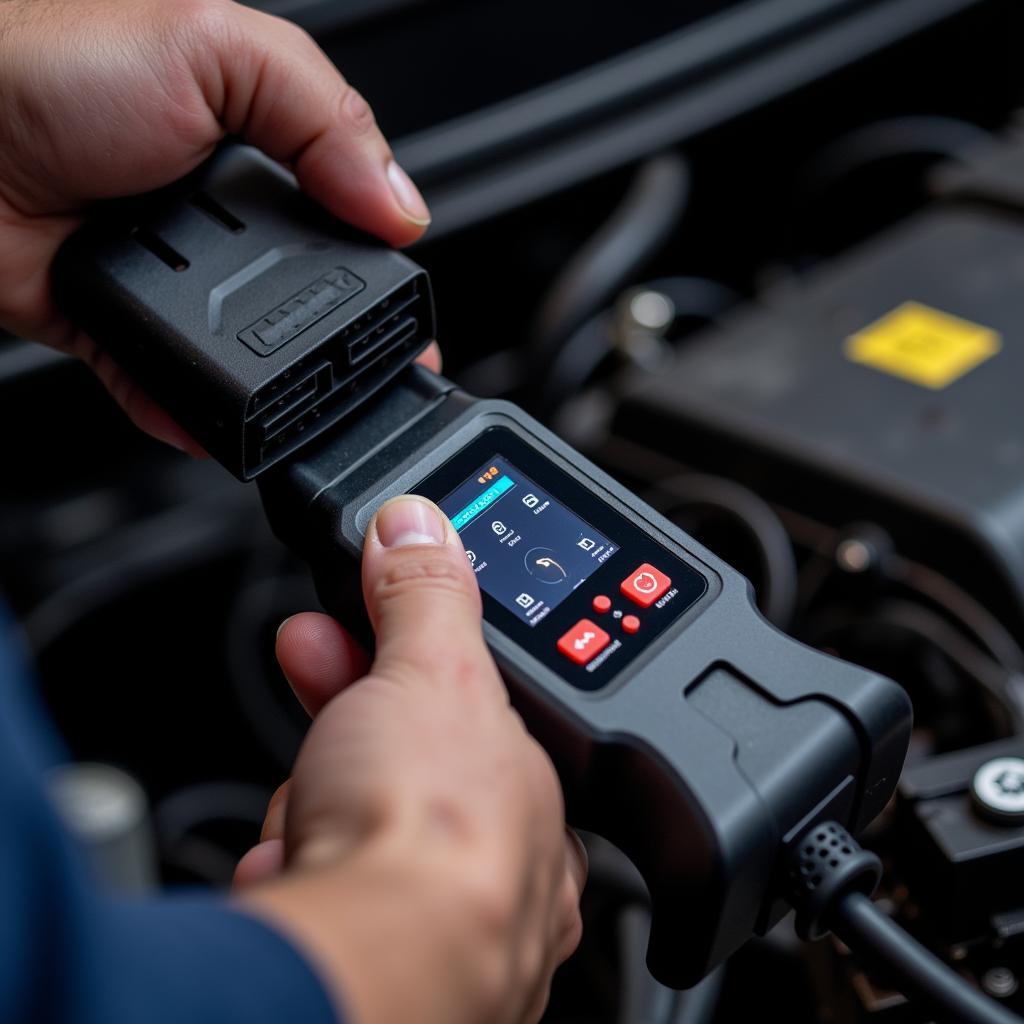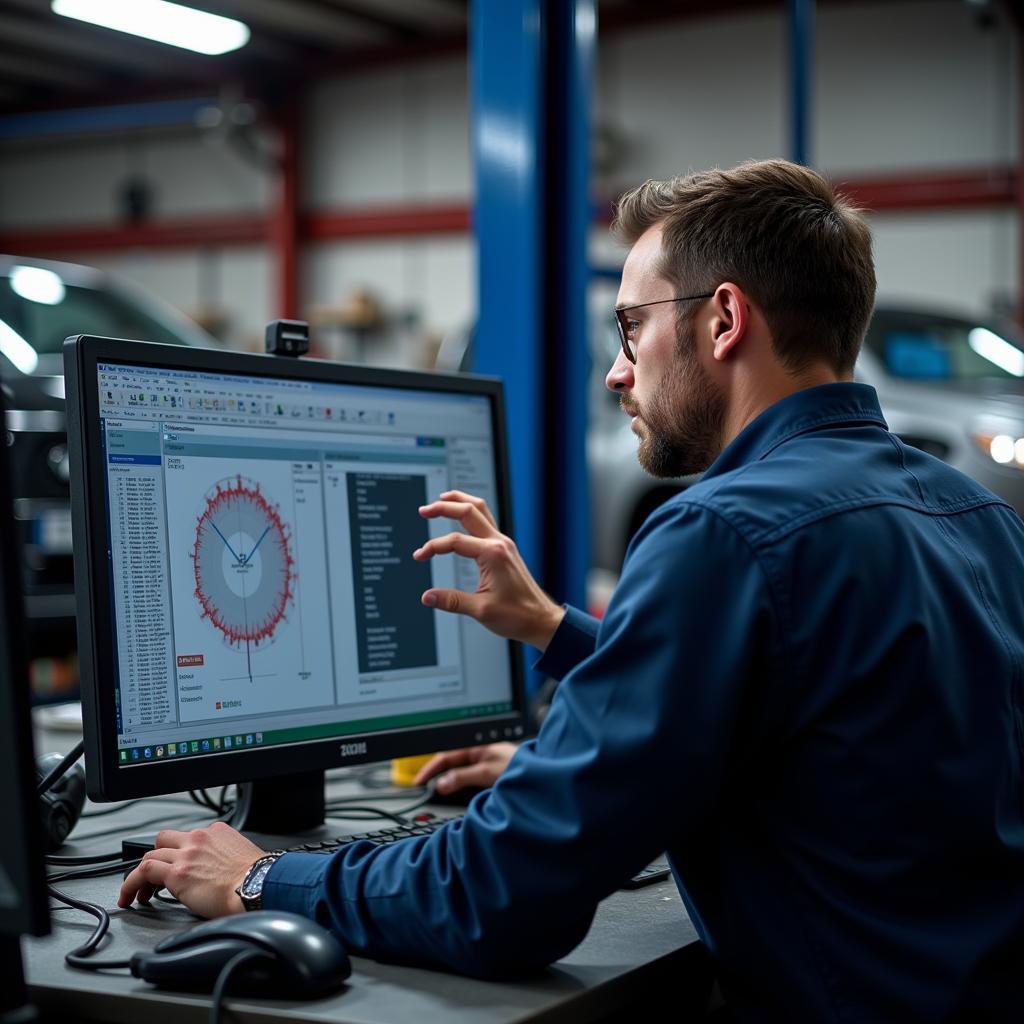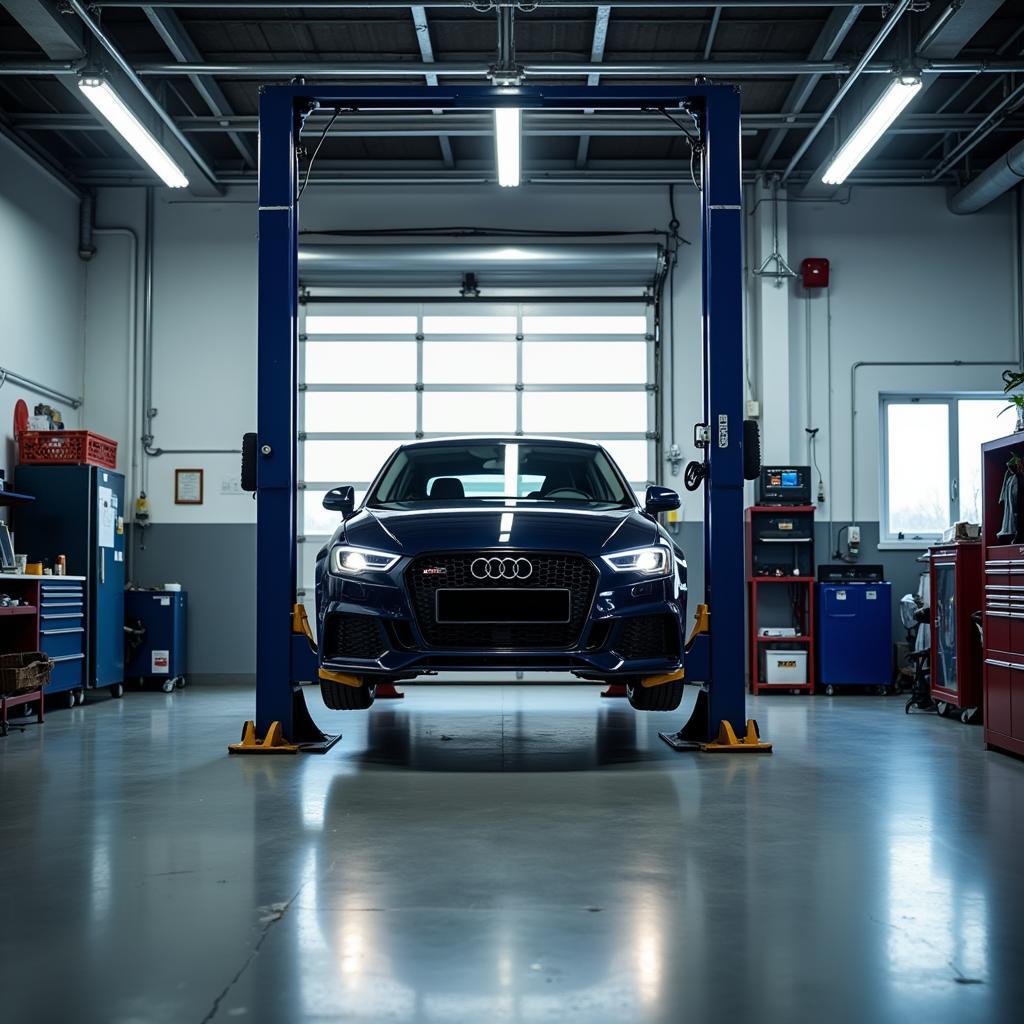Car Diagnostic Charges can sometimes feel like a mystery, especially when you’re facing a blinking dashboard light or an unfamiliar sound coming from your engine. You know your car needs attention, but how much will it cost just to figure out the problem? This guide dives deep into the world of car diagnostic charges, explaining what influences the price, what to expect, and how to approach the process with confidence.
What Exactly is a Car Diagnostic Charge?
Before we break down the costs, let’s define what a car diagnostic charge actually covers. Think of it as the investigative phase of your car repair. When you take your car to a mechanic for a diagnostic, they’re using specialized equipment and their expertise to pinpoint the root cause of any issues. This goes beyond just a visual inspection – it’s a deep dive into your car’s computer system and components.
 Mechanic using car diagnostic tools
Mechanic using car diagnostic tools
Factors Influencing Car Diagnostic Charges
Several key factors contribute to the cost of a car diagnostic:
1. The Shop’s Location and Reputation: Just like any service, location matters. Mechanics in bustling city centers or those with a reputation for high-quality work often have higher overhead costs, which can be reflected in their diagnostic fees.
2. The Complexity of the Issue: A simple problem with a straightforward solution, like a loose gas cap triggering a check engine light, will generally cost less to diagnose than an intermittent electrical issue or a complex engine problem.
3. The Technology Involved: As vehicles become increasingly sophisticated, the diagnostic equipment required to interface with their systems also advances. Some shops invest in cutting-edge tools that might come with a slightly higher price tag, but they can provide more accurate and efficient diagnoses.
4. Time is Money: Diagnosing a car issue can take anywhere from 30 minutes for a basic check to several hours for more complex problems. The longer it takes a mechanic to pinpoint the issue, the higher the labor costs will be.
 Mechanic analyzing data on a computer
Mechanic analyzing data on a computer
What’s the Average Car Diagnostic Charge?
While there’s no one-size-fits-all answer, most car owners can expect to pay between $80 to $150 for a standard car diagnostic. Keep in mind that this is just an average. Factors like those mentioned above can significantly impact the final price.
Don’t Be Afraid to Ask Questions!
Knowledge is power when it comes to car repairs. Before agreeing to a diagnostic, don’t hesitate to ask the mechanic:
- “What’s included in your diagnostic charge?”
- “Do you have a standard hourly rate for diagnostics?”
- “If I proceed with repairs, will the diagnostic fee be waived or deducted?”
Is a Car Diagnostic Charge Really Necessary?
It’s tempting to skip the diagnostic and jump straight to potential solutions, especially if you think you know what’s wrong. However, a professional diagnosis is crucial for several reasons:
- Accurate Repairs: Throwing parts at a problem without a proper diagnosis can lead to unnecessary expenses and may not even solve the issue.
- Safety First: Some car problems can be safety hazards. A professional diagnosis can identify these issues early on, preventing potential accidents.
- Warranty Coverage: If your car is still under warranty, you might need a documented diagnosis from a certified mechanic to have the repairs covered.
 Car on a lift in a repair shop
Car on a lift in a repair shop
Saving Money on Car Diagnostic Charges
While it’s important to prioritize professional diagnostics, there are ways to potentially save money:
- Check for Coupons or Specials: Many repair shops offer discounts on diagnostic services, especially during slower seasons.
- Consider Independent Shops: Independent mechanics often have lower overhead costs compared to dealerships, which can translate to more affordable diagnostics.
- DIY If You’re Experienced: If you’re mechanically inclined, you can invest in an OBD-II scanner and try diagnosing some basic issues yourself. However, proceed with caution and be prepared to seek professional help for more complex problems.
Conclusion
Understanding car diagnostic charges is essential for every car owner. By knowing what to expect and asking the right questions, you can approach the process with confidence, ensuring your car gets the proper care it deserves without breaking the bank. Remember, a well-informed car owner is a empowered car owner.

Leave a Reply